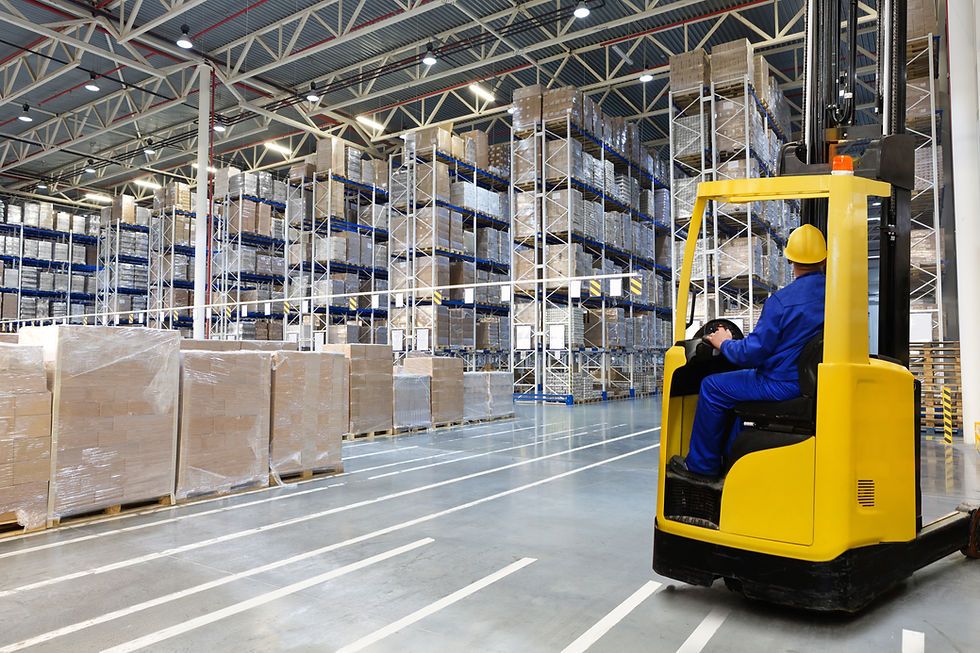Part 4: Transforming Manufacturing with Generative AI: Unleashing the Future of Smart Production
- May 15, 2024
- 3 min read
Updated: Jul 8, 2024
Manufacturing is undergoing a significant transformation, driven by the advent of advanced technologies. Among these, Generative AI (GenAI) stands out as a groundbreaking force, revolutionizing production processes, enhancing efficiency, and fostering innovation. In this blog post, we'll delve into how GenAI is being used in manufacturing and highlight some of the commercial tools available that harness this powerful technology.
The Role of Generative AI in Manufacturing
Generative AI refers to artificial intelligence systems capable of generating new content, designs, and solutions by learning from existing data. In manufacturing, GenAI offers several pivotal benefits:
Optimizing Product Design: GenAI can analyze vast datasets to create optimized product designs, enhancing functionality, reducing material usage, and shortening design cycles.
Enhancing Production Processes: By analyzing historical production data, GenAI can identify inefficiencies and suggest process improvements, leading to reduced downtime and increased productivity.
Predictive Maintenance: GenAI algorithms can predict equipment failures before they occur, enabling proactive maintenance scheduling and minimizing costly unplanned downtimes.
Quality Control: GenAI systems can detect defects and anomalies in real-time, ensuring higher quality products and reducing waste.
Supply Chain Optimization: GenAI can optimize supply chain operations by predicting demand, optimizing inventory levels, and improving supplier management.
Commercial Tools Utilizing Generative AI in Manufacturing
Several commercial tools have integrated GenAI to enhance various aspects of manufacturing. Here are some leading examples:
1. Siemens NX
Siemens NX is a comprehensive CAD/CAM/CAE software that leverages GenAI for:
Generative design, allowing engineers to create innovative product designs with optimized performance characteristics.
Advanced simulation capabilities to test and validate designs in a virtual environment.
Streamlining the entire product development process from concept to manufacturing.
2. Autodesk Fusion 360
Autodesk Fusion 360 incorporates GenAI for:
Generative design, providing engineers with multiple design alternatives based on specified constraints.
Enhanced collaboration and data management tools to streamline the design-to-manufacturing workflow.
Real-time simulation and analysis to ensure designs meet performance requirements.
3. PTC Creo
PTC Creo utilizes GenAI to:
Enable generative design, allowing for the creation of lightweight, efficient structures.
Integrate advanced simulation tools to predict and optimize product performance.
Enhance additive manufacturing capabilities, optimizing designs for 3D printing.
4. IBM Watson for Manufacturing
IBM Watson brings AI to manufacturing with features such as:
Predictive maintenance, using AI to forecast equipment failures and schedule maintenance.
Quality control, leveraging AI to detect defects and ensure product quality.
Supply chain optimization, enhancing efficiency and reducing costs through AI-driven insights.
5. Siemens MindSphere
Siemens MindSphere is an industrial IoT as a service solution that integrates GenAI to:
Analyze production data in real-time, identifying inefficiencies and opportunities for improvement.
Predict equipment failures and optimize maintenance schedules.
Enhance overall equipment effectiveness (OEE) through data-driven insights.
The Future of Manufacturing with Generative AI
The integration of Generative AI in manufacturing is still evolving, but its potential is immense. As technology advances, we can anticipate:
Increased Customization: GenAI will enable manufacturers to offer more personalized products tailored to individual customer preferences.
Sustainability: AI-driven insights will help manufacturers reduce waste, optimize resource usage, and adopt more sustainable practices.
Enhanced Collaboration: GenAI tools will facilitate better collaboration between design, engineering, and production teams, leading to more cohesive and innovative products.
Conclusion
Generative AI is poised to redefine manufacturing by enhancing efficiency, quality, and innovation. The commercial tools available today are just the beginning, heralding a future where manufacturing processes are smarter, more agile, and highly responsive to market demands. Embracing GenAI in manufacturing is no longer an option but a necessity for companies aiming to thrive in the competitive global market.
By leveraging the power of Generative AI, manufacturers can not only optimize their current operations but also pave the way for groundbreaking innovations that will shape the future of the industry.





Comments